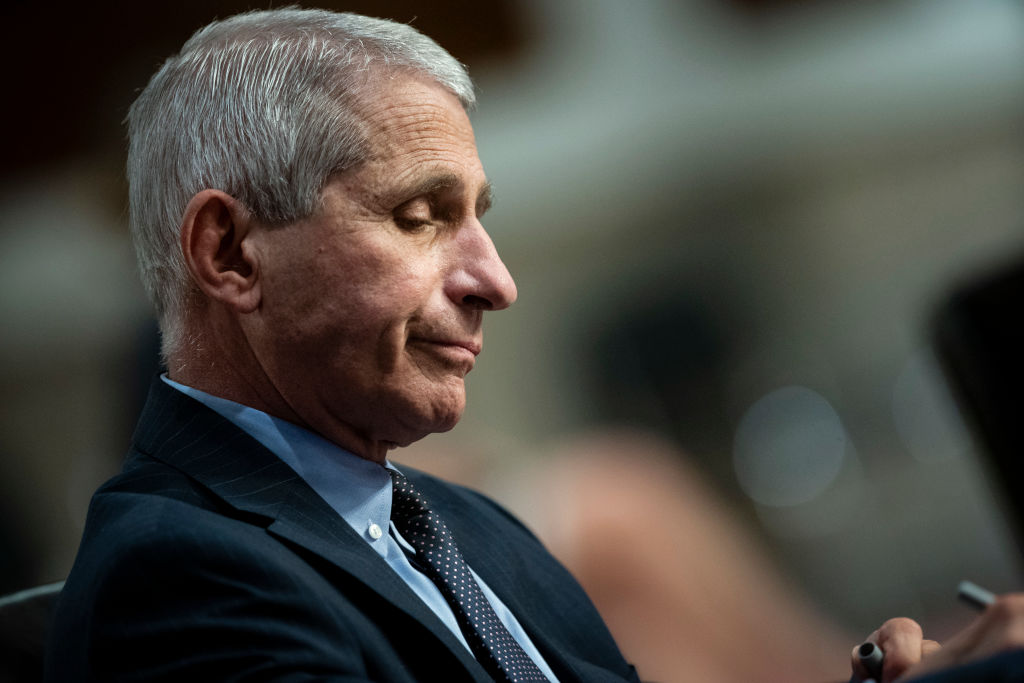Dr. Anthony Fauci has left the building.
The polarizing now-ex head of the National Institute of Allergy and Infectious Diseases, as well as ex-Chief Medical Advisor to President Joe Biden, had previously announced that he would be stepping down at the “end of” December.
That would mean he is no longer a federal employee as of Sunday, although no official announcement has been made yet.
According to Fauci’s own words, however, he is definitely “not retiring.”
“While I am moving on from my current positions, I am not retiring,” Fauci said in an August statement. “After more than 50 years of government service, I plan to pursue the next phase of my career while I still have so much energy and passion for my field.”
Perhaps to the chagrin of Fauci’s staunchest critics, the 82-year-old doctor made it clear he still intends to wield influence in the medical field.
“I want to use what I have learned as NIAID Director to continue to advance science and public health and to inspire and mentor the next generation of scientific leaders as they help prepare the world to face future infectious disease threats,” he said.
To call Fauci divisive would be an understatement. The man has been described as everything from a “dangerous fraud” to “the sexiest man alive.”
The bitter divide largely was felt across the country, with some hailing Fauci as a brilliant superhero and others denouncing him as an egomaniac dictator.
Fauci first rose to prominence when the COVID-19 pandemic first struck America, often accompanying then-President Donald Trump for periodic televised updates on the virus.
Despite a positive relationship with Trump at first, the two began publicly butting heads more and more. Things became downright acrimonious once Trump left office in 2020.
Ironically, the very thing that helped Fauci achieve his celebrity status is the same thing that has caused a whirlwind of backlash against him — the COVID-19 response.
Fauci’s evolving and changing stances on how best to tackle the spread of COVID-19 has frustrated everyone from former Fox News host Megyn Kelly to Florida Gov. Ron DeSantis.
Fauci even made an enemy out of PETA, though that had more to do with allegations of laboratory testing on animals.
Of course, perhaps the fiercest enemy that Fauci made with his handling of COVID-19 is Senator Rand Paul.
In fact, Paul has made it aggressively clear that Fauci’s resignation would not preclude him from further investigations regarding the origins of the pandemic.
Fauci’s resignation will not prevent a full-throated investigation into the origins of the pandemic. He will be asked to testify under oath regarding any discussions he participated in concerning the lab leak.
— Rand Paul (@RandPaul) August 22, 2022
Aside from his handling of the COVID-19 response, the other biting criticism of Fauci is that he financially benefited from the pandemic.
He did see his family’s net worth skyrocket during the pandemic. In fact, in the year immediately preceding the outbreak (2019) and the year the outbreak first occurred (2020), Fauci was the highest-paid federal employee, per Forbes.
Yes, he was paid more than the U.S. president ($400,000) and four-star generals in the military ($282,000). Fauci earned $417,608 and $434,312 in 2019 and 2020, respectively.
Oh, and as Forbes notes, while Fauci is not officially retiring yet, whenever he does, he’s looking at the largest federal retirement package in U.S. history.
Auditors estimate Fauci’s annual retirement would exceed $350,000, with pension and benefits continuing to increase given the doctor’s 55 years of service as a federal employee.
This article appeared originally on The Western Journal.
























